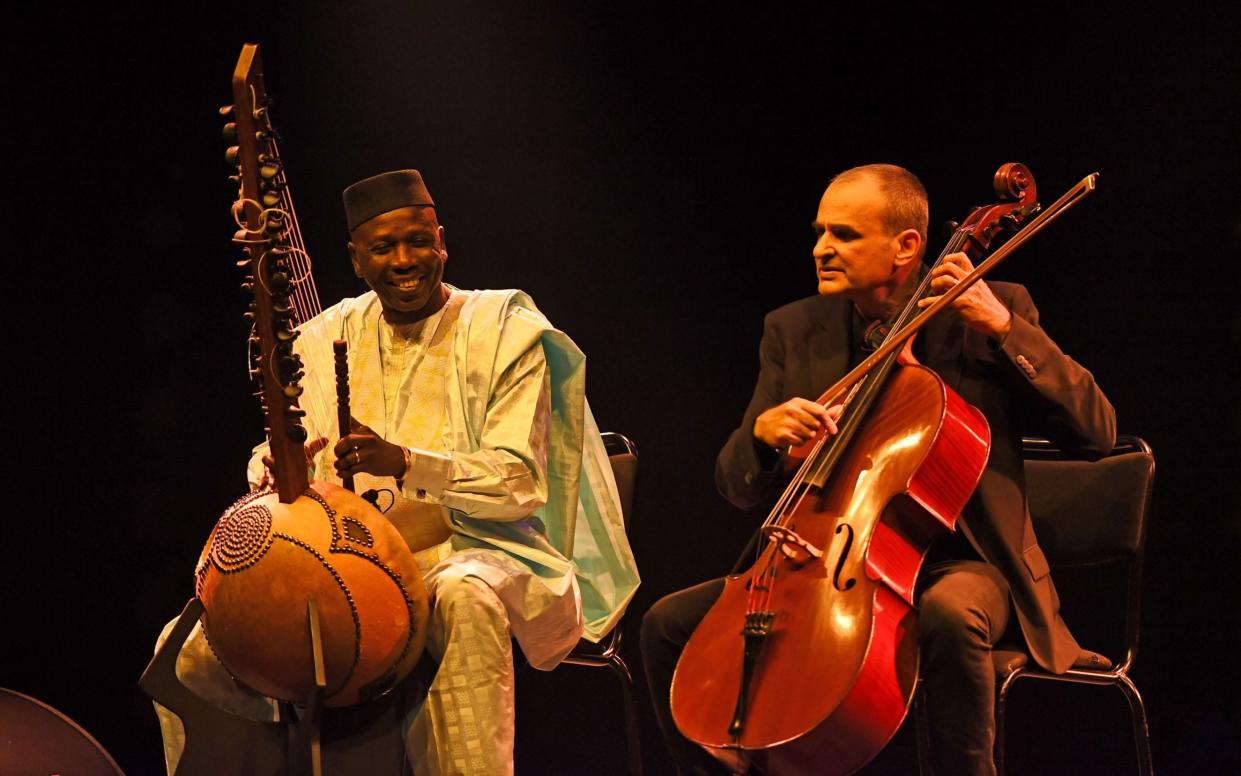Ballaké Sissoko and Vincent Ségal, review: defying genres and breaking boundaries

Ballaké Sissoko and Vincent Ségal prove that breaking boundaries can be a mellifluous business. Sissoko is a Malian kora virtuoso descended from a long line of griots, West Africa’s music-making class. Segal is a classically trained, experimentally inclined French cellist whose back catalogue includes trip-hop high jinks and a collaboration with Elvis Costello. For the best part of 15 years, the pair have been blending their traditions – and adding others to the mix: blues, jazz, dashes of Greek rebetiko – with exquisite playfulness and poise.
Naturally, things have been quiet recently (although Sissoko released an album in 2021, the last time he made headlines was just before the pandemic when his instrument – a 21-stringed cross between a harp and a lute – was dismantled by clueless US customs officials). But on Monday night they were in London, as part of the Roundhouse’s In the Round festival. And at their best, they sounded as if they’d never stopped, like two old friends picking up a conversation exactly where they’d left off.
Their audience was different from the usual world-music crowd. At gigs like this one I normally find myself surrounded by linen shirts, Le Laboureur jackets and Daunt Books tote bags (some belonging to me, admittedly). Here there was a welcome new contingent – a younger crowd, possibly even Gen Z. Sissoko and Ségal: coming to a TikTok feed near you.
The genre-hopping tone of the evening was set by the supporting act, Abel Selaocoe, a radiantly gifted South African cellist and one-man band, whose music ran the gamut from beatboxing to the prelude of Bach’s third cello suite. Sissoko and Ségal’s set was less assertively eclectic, drawing on their two albums, Chamber Music (2009) and Musique De Nuit (2015). From the get-go, a pattern was established: one provided a pulse, or a chord progression, while the other extemporised. They shifted between these roles seamlessly, riffing off each other, pushing each other on.
Ségal, dressed in black, had a slightly impish stage presence, eliciting from his cello all manner of noises, from squawks to sonorous drones. Sissoko, in his blue robes, cut a statelier figure. He is, after all, kora royalty: his father was a master, and the only player better known than him today is his cousin, Toumani Diabaté. While his partner took care of the patter between numbers, he drummed his fingers on the calabash gourd, impatient to get back to business.
Fair enough: in full flight he is extraordinary, pulling off quicksilver runs without so much as a blink. For me, though, the stakes felt higher when he and Ségal slowed the music right down – along, it sometimes felt, with time itself. Their hypnotic spell is a fragile thing, easily stretched too far, and there were indeed moments when the night music turned soporific. But when it works, there’s nothing else like it.


